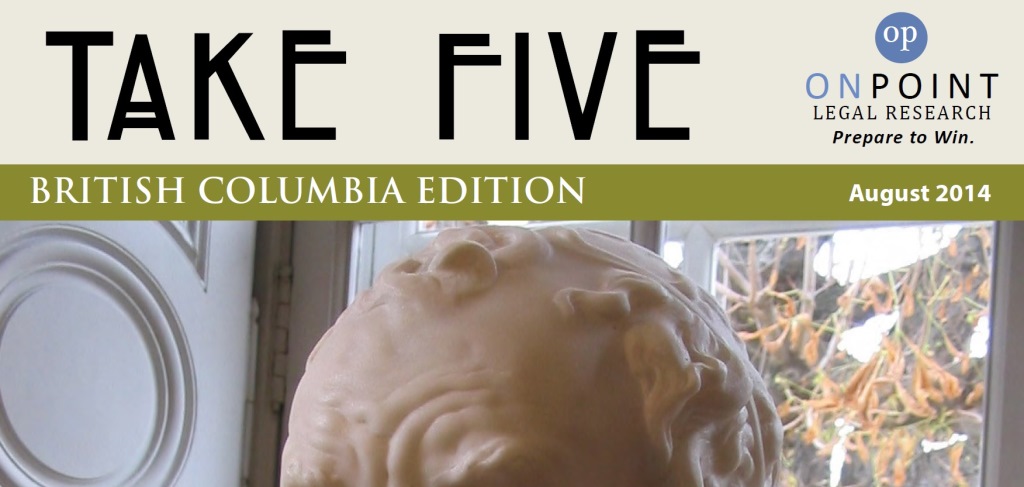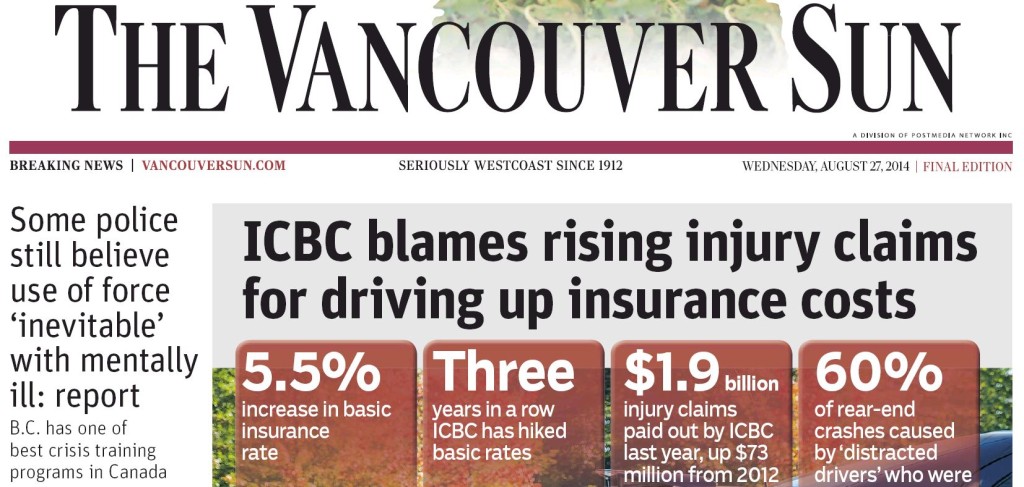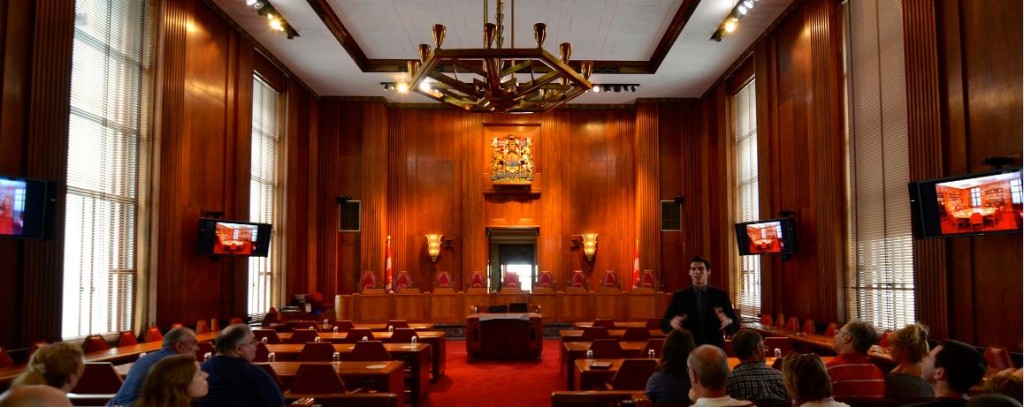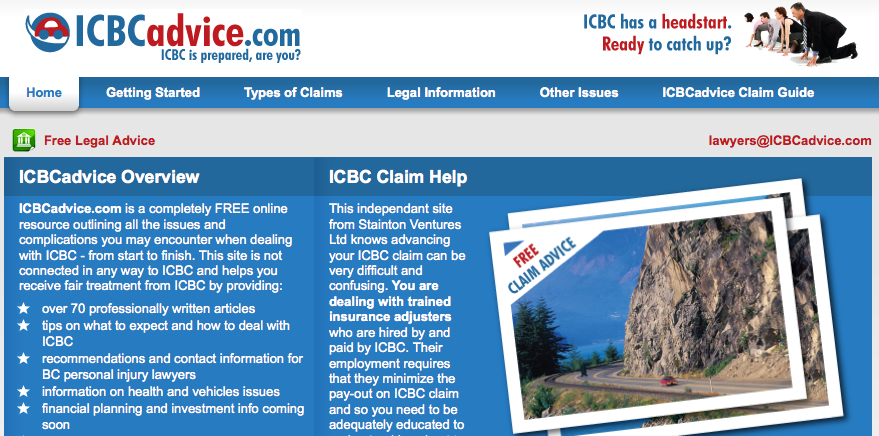Take Five Magazine Reports on Wes Mussio’s Court of Appeal Victory
Posted on by Mussio Goodman
Magazine Reports on Wes Mussio of Mussio Goodman Successful Court Appeal
As reported in the August issue of Take Five by OnPoint Legal Research, the BC Court of Appeal has rejected ICBC’s attempt to shut down ICBCadvice.com, a free informational website for those dealing with ICBC claims, owned by Wes Mussio’s wife. This was ICBC’s second attempt to remove the website – the first attempt was rejected by the BC Supreme Court in 2012. ICBC claimed that the website unlawfully infringed on the company’s copyright license of the term “ICBC” and, therefore, violated the Trade-Marks Act. However, the Court of Appeal sided with Wes Mussio, counsel for the Respondant, confirming that ICBCAdvice.com was not in violation of the Act.
Counsel Wes Mussio commented to Take Five:
ICBC was attempting to argue that any website with the acronym ‘ICBC’ in it is a copyright infringement. The Court of Appeal made it clear that where the website is not trying to confuse web browsers, there is no copyright infringement. It opens up the door to allow a wider reaching use of website names. If the Court of Appeal would’ve allowed the appeal, ICBC could’ve gone after dozens and dozens of websites that use the acronym ICBC in it. For that reason, the case is very important to law firms and other companies marketing in the area of ICBC Claims.
A Summary of the Court Decision in Take Five is as Follows:
The appeal was dismissed. The Appellant argued that the trial judge failed to apply the correct tests for determining breaches of ss. 9 and 11 of the Trade-marks Act and with respect to passing-off. The Appellant further argued that the judge erred in mixed fact and law in finding that the use of the ICBCadvice.com domain name did not violate the Trade-marks Act or amount to passing-off. The Court of Appeal began its analysis by determining that because the resolution of issues raised involved the legal effect of undisputed facts, the appropriate standard of review was correctness. The Appellant submitted that ICBCadvice.com so nearly resembled its mark as to be likely mistaken for it. In particular, it pointed to the fact that its official mark comprises the first and, arguably, dominant part of the domain name.
The Appellant went on to argue that its rights to the mark could not be circumvented by adding a non-distinctive word such as “advice” after its official mark, as the consumer would likely be led to believe the Appellant itself was offering advice on its business and services. The Court of Appeal disagreed, commenting that the argument failed “to give the ‘relevant consumer’, i.e. an Internet user, credit for even the most basic understanding of a domain name.” The Appellant submitted that the Court of Appeal must take care to avoid failing to differentiate the test applicable to official marks from the test applicable to trade-marks. While the Court acknowledged the difference between the tests, it found that official marks like any others serve an identification function, and it could not accept that the average Internet user would mistakenly think ICBCadvice.com referred to advice provided or endorsed by the Appellant. Therefore, the Court of Appeal held that the website and the related domain names did not contravene the Trade-marks Act. The Court rejected the Appellant’s passing-off argument for the same reasons.




